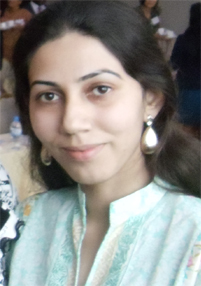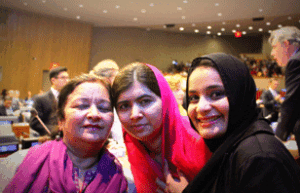With only 58% of the population being able to read and write and 6.7 million children being out of school, education system in Pakistan must take a bold leap. The change needs to be bottom-up, systematically encouraging local community (students, teachers, parents, youth groups) to offer their reflections in the development process. Pakistan is fortunate to have the most talented pool of young people which can bring wonders to the socio economic development of this country amidst policies that enable opportunity to enact policies and promote investments that raise the human capital of young people while positioning them for greater economic productivity when they enter their working years.
One such welcoming step in Pakistan is the formulation of the new National Education Policy (aimed to be finalized in January 2016) through an inclusive, participatory and holistic approach. The latest National Education Policy was framed over 4 years and approved by the Cabinet in September 2009. Since then several fundamental changes have taken place in the federation and the constitution of Pakistan that call for a revision of the Policy. This includes the 18th Amendment to the Constitution devolving powers at the provincial level, Article 25-A giving 5-16 year olds the right to free and compulsory education and the global development agendas (Sustainable Development Goals, Incheon Declaration, Qingdao Declaration) making a call for lifelong learning.
The Federal Ministry for Education and Professional Training in collaboration and through its mandate from the Inter Provincial Education Ministerial Conference (IPEM-C) is working on revising the National Education Policy 2009 to meet the changing dynamics of the 21st century with regards to quality education, innovation and research, aiming to provide all children a strong foundation for their futures. Following the bottom-up approach, Idara-e-Taleem-o-Aagahi with support from United Nations Development Programme (UNDP) and in collaboration with government education department of each province is holding consultative meetings to discuss and review the previous policy and submit concrete recommendations for the future. These consultations are meant to ensure active, informed and voluntary involvement of the Pakistani society (teachers, students, unions, educators, young entrepreneurs) in the policy-making process that will undoubtedly have an impact on their socio economic lives.
2nd September 2015 was indeed an exciting day for Hyderabad where the second of many country wide consultation meetings took place at the office of Strengthening Participatory Organization (SPO). The meeting was attended by 60+ teachers, head teachers, students, civil society, teacher union representatives and government officials. We were excited to see a large group of diverse individuals many young activists geared up to build their ownership in one of the most important policy document of the education sector. In an appropriate learning environment, students and youths (in particular) were seen forming compelling opinions, and making bold action plans for redefining quality teaching and learning.
Speaking on the occasion, Syed Ghulam Rasool, Director Education (Hyderabad) appreciated the active participation of youth and said he is fully confident that the youth groups will bring about a positive change in the education system of Pakistan. He further added that together we have to build on the progress we have made in realizing our vision of a better life for all. The process of NEP 2009 was also examined by the consultation in the light of Post 18th Amendment scenario as were the challenges of implementing 25-A or right to education and the upcoming Sustainable Development Goals (SDGs) in general and SDG 4 and its 10 targets in particular. While discussing the priorities of the provincial government with respect to the education sector, Idress Jataoi, Deputy Director, Bureau of Curriculum, said: “Provinces have been given the power and authority to improve their governance and raise the bars of education. We have to set our priorities and build standards for improvement, and ensure that the good work continues to grow”.
Admiring the work that Idara-e-Taleem-o-Aagahi has undertaken to enable citizens participate in the consultation meetings, Sadiq Aryan, a student and active citizen who is also an Education Youth Ambassador for right to education remarked, “While switching to every next slide of NEP 2016 presentation, the facts and figures saddened me to consider the plight of millions of children who are deprived of basic education facilities.” He longed to do something that could perhaps bring change in the current education system of Pakistan and Sindh.
We sincerely hope that aspirations of Aryan and all the young students of our county are reflected in the upcoming National Education Policy 2016 and that the new policy is able to ensure progress for its people throughout their lives. We strongly anticipate that the policy will live up to the expectations and ambitions of the demographic dividend- the next generation, allowing generations of learners to move up the value chain and build better communities.





